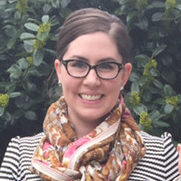People who are fully vaccinated against COVID-19 may skip quarantine after exposure in some cases, according to new guidance from the Centers for Disease Control and Prevention, updated Wednesday.
The guidance is not intended for healthcare workers in facility settings such as nursing homes however — except as a last option to address a pressing issue such as staffing shortages, the agency added.
In general, vaccinated healthcare workers (and facility residents) should continue to quarantine if exposed to known or suspected SARS-CoV-2 infection. That’s because it remains unclear how much the vaccines may reduce transmission and how long their protection lasts, the agency advised. In addition, the efficacy of the vaccines against emerging SARS-CoV-2 variants is not known.
That said, individuals, including healthcare workers in rare circumstances, may skip quarantine if they meet the following criteria:
- They are fully vaccinated and two or more weeks have passed since they received the second dose in a two-dose series, or two or more weeks have passed since they received one dose of a single-dose vaccine;
- They are within within a three-month window of the last dose in the series; and
- They have remained asymptomatic since the current COVID-19 exposure.
“Persons who do not meet all three of the above criteria should continue to follow current quarantine guidance after exposure to someone with suspected or confirmed COVID-19,” the agency advised.
Administrators should note that the new quarantine guidance is for the workplace only. Exposed healthcare personnel would not be required to quarantine outside of work, said Jodi Eyigor, director, nursing home quality and policy for LeadingAge, in a Thursday member call.
Waive quarantine if necessary, but “not preferred”
Healthcare facilities may wish to consider waiving quarantine for fully vaccinated healthcare personnel as a strategy to alleviate staffing shortages, the agency stated. But this should not be standard practice in settings such as nursing homes, said Kara Jacobs Slifka, M.D., MPH, division of healthcare quality promotion at CDC, in the LeadingAge call.
“Although not preferred,” administrators could also consider waiving quarantine for vaccinated residents or patients to “mitigate critical issues such as lack of space, staff, or equipment to safely care for exposed patients or residents,” the CDC said. In these cases, decisions should be made in consultation with public health officials and infection control experts, it said. This solution is advised only as a last resort.

In yet another wrinkle, residents of campus-style facilities such as independent living are grouped with the general community under the new guidance, said Slifka. That means there is more choice in these settings for vaccinated individuals: Either follow the new guidance and forgo quarantine after exposure, or take a risk-vs.-benefit perspective and continue to quarantine when exposed, she said.
Vaccinated or not, everyone should watch for symptoms of COVID-19 for 14 days after possible exposure, CDC stated. And people who experience symptoms should be clinically evaluated for COVID-19 and tested for SARS-CoV-2 when advised. In addition, vaccinated persons should continue to follow infection prevention guidance such as mask-wearing, social distancing and hand-washing, to protect themselves and others, it concluded.
Post-vaccination quarantine recommendations will be updated again when more COVID-19 vaccine data become available and more vaccines are authorized, the agency said.
In related news:
Most people getting second COVID-19 shots on time, CDC data show Fully 96% of Americans are receiving the second dose of their COVID-19 vaccines within four days of the date recommended, according to federal data obtained by CBS News. The current success of the two-dose regimen may be due to the reliability of second dose shipments, the news outlet has found.




